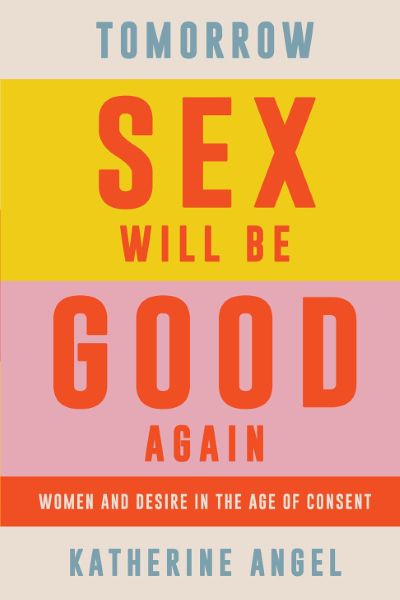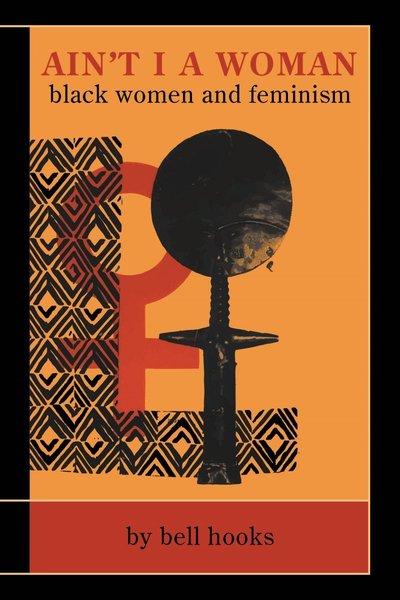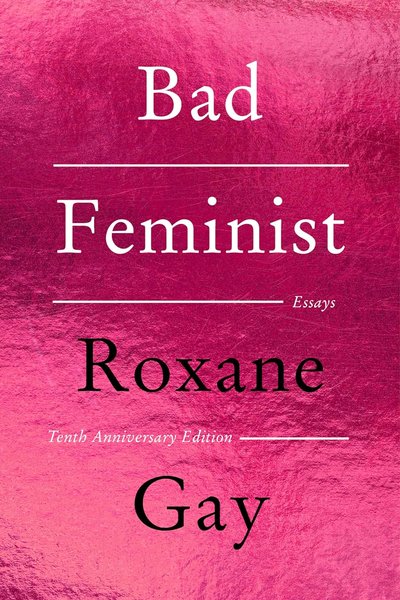Tomorrow Sex Will Be Good Again: Women and Desire in the Age of Consent
A provocative examination of women's sexuality, desire, and agency in the contemporary era of affirmative consent. Angel challenges simplistic narratives about sexual empowerment and explores the complex relationship between consent, desire, and female sexual autonomy in the wake of #MeToo.

📝 Book Review
“Tomorrow Sex Will Be Good Again: Women and Desire in the Age of Consent” stands as one of the most intellectually rigorous and emotionally honest examinations of contemporary sexual politics to emerge from the post-#MeToo landscape. Katherine Angel’s penetrating analysis challenges both traditional patriarchal assumptions about women’s sexuality and certain strands of contemporary feminist discourse, offering a nuanced exploration of desire, consent, and female sexual agency that refuses easy answers or comfortable certainties.
Katherine Angel brings exceptional scholarly depth and personal insight to this complex terrain. As a writer, academic, and Director of the MA in Creative and Critical Writing at Birkbeck, University of London, Angel combines rigorous intellectual analysis with lyrical prose and unflinching personal reflection. Her PhD in the history of psychiatry and sexuality from the University of Cambridge provides crucial historical perspective on how women’s sexual desire has been understood, pathologized, and politicized across different eras.
Angel’s previous works, including “Daddy Issues” and “Unmastered: A Book on Desire, Most Difficult to Tell,” established her as a distinctive voice capable of weaving together academic analysis, cultural criticism, and intimate personal narrative. This approach proves essential for tackling the sensitive and politically charged questions surrounding women’s sexuality, consent, and desire that form the core of this book. Her writing has appeared in prestigious publications including the Guardian, Granta, and the Los Angeles Review of Books, demonstrating her ability to engage both academic and general audiences with complex ideas about sexuality and gender.
The Problem of Consent Discourse
Angel’s central argument revolves around a careful critique of how contemporary discussions of consent have evolved, particularly in the wake of the #MeToo movement. While acknowledging the crucial importance of consent as a framework for understanding sexual ethics and preventing sexual violence, Angel argues that current consent discourse has become overly simplified and potentially limiting for women’s sexual agency and exploration.
The book demonstrates how the emphasis on affirmative consent, while necessary and important, can inadvertently create new forms of sexual regulation that may not serve women’s actual experiences of desire and sexuality. Angel explores how the current framework often assumes that women always know what they want, can clearly articulate their desires, and should be able to consent enthusiastically and unambiguously. She argues that this framework, while well-intentioned, fails to account for the complexity, ambivalence, and uncertainty that often characterize real sexual encounters.
Angel’s analysis reveals how consent discourse can become a form of sexual governance that places unrealistic expectations on both women and men, potentially creating new anxieties and limitations around sexual expression. She suggests that while consent remains essential, an over-emphasis on its clear articulation can obscure other important aspects of sexual experience, including fantasy, spontaneity, and the exploration of desires that may not be immediately clear or easily communicated.
The Complexity of Desire
Central to Angel’s analysis is her exploration of female desire as a complex, often contradictory force that resists simple categorization or political instrumentalization. She challenges both traditional assumptions that women are naturally less sexual than men and contemporary feminist narratives that emphasize women’s sexual empowerment and agency as straightforward goods to be achieved.
Angel argues that women’s desire often includes elements that may seem to contradict feminist ideals of equality and empowerment. She explores how women may sometimes desire submission, dominance, or scenarios that would be problematic if enacted literally but serve important psychological or erotic functions as fantasy. Her analysis suggests that acknowledging these complexities is essential for developing a more honest and complete understanding of women’s sexuality.
The book examines how the pressure to conform to idealized versions of empowered female sexuality can itself become constraining, creating new forms of sexual normativity that may limit women’s ability to explore their actual desires. Angel suggests that true sexual liberation requires the freedom to acknowledge ambivalence, uncertainty, and desires that may not align with political ideals of empowerment.
Challenging Sexual Empowerment Narratives
One of Angel’s most significant contributions involves her critical analysis of contemporary narratives around women’s sexual empowerment. While recognizing the importance of challenging traditional sexual double standards and promoting women’s sexual agency, she questions whether current empowerment discourse adequately captures the complexity of women’s sexual experiences.
Angel explores how the emphasis on sexual empowerment can create pressure for women to present themselves as sexually confident, knowing, and empowered even when their actual experiences may be more uncertain or complicated. She suggests that this pressure can create new forms of sexual performance that may not serve women’s actual desires or well-being.
The analysis reveals how empowerment narratives, while politically important, can sometimes obscure the ongoing realities of gendered power dynamics, social conditioning, and the complex ways that patriarchal structures continue to shape women’s sexual experiences. Angel argues for approaches to women’s sexuality that can acknowledge both the importance of challenging oppression and the complexity of desire itself.
The Historical Context of Women’s Sexuality
Angel’s background in the history of psychiatry and sexuality provides crucial context for understanding contemporary debates about women’s desire and consent. She traces how women’s sexuality has been understood and regulated across different historical periods, revealing how current discussions both continue and break from previous approaches.
The historical analysis demonstrates how women’s sexual desire has consistently been a site of anxiety and regulation, whether through Victorian notions of female sexual passivity, Freudian theories of female sexual development, or contemporary frameworks of sexual empowerment. Angel shows how each era’s approach to women’s sexuality reflects broader cultural anxieties about gender, power, and social control.
This historical perspective proves essential for understanding why contemporary debates about consent and desire have become so politically charged. Angel reveals how discussions of women’s sexuality inevitably involve questions about women’s agency, autonomy, and place in society more broadly, making these debates about much more than sexual behavior alone.
The Politics of Sexual Agency
Throughout the book, Angel explores the complex relationship between personal sexual experience and political discourse. She examines how women’s sexuality has become a battleground for broader debates about feminism, gender equality, and social change, often in ways that may not serve women’s actual sexual well-being.
Angel argues that the politicization of women’s sexuality, while sometimes necessary for challenging oppression, can also create pressures and expectations that may limit women’s ability to explore their desires authentically. She suggests that women may feel pressure to align their sexual experiences with particular political positions, whether traditional or feminist, in ways that may not reflect their actual desires or experiences.
The analysis reveals the tension between collective political action around sexuality and individual sexual autonomy. Angel explores how this tension plays out in contemporary debates about sex work, pornography, kink, and other aspects of sexuality where feminist positions may conflict with some women’s actual choices or desires.
Ambivalence and Uncertainty
One of Angel’s most important contributions involves her exploration of ambivalence and uncertainty as potentially valuable aspects of sexual experience rather than problems to be solved. She challenges the assumption that clarity and certainty about desire are always preferable or even possible, suggesting that ambivalence may be a normal and potentially generative aspect of sexuality.
Angel examines how the emphasis on clear consent and empowered choice can make it difficult to acknowledge experiences of uncertainty, confusion, or changing feelings that may be normal parts of sexual development and exploration. She suggests that creating space for ambivalence and uncertainty may be essential for authentic sexual experience.
This analysis proves particularly important for understanding young women’s sexual experiences, which may often involve exploration, experimentation, and changing feelings that don’t fit neatly into frameworks of empowered choice or clear consent. Angel argues that acknowledging uncertainty may be more helpful than demanding clarity in situations where clarity may not be possible or appropriate.
The Limits of Language
Angel provides sophisticated analysis of how language shapes and potentially limits discussions of sexuality and consent. She explores how the vocabulary available for discussing sexual experience may not adequately capture its complexity, leading to oversimplified understandings that may not serve women’s actual experiences.
The book examines how concepts like “empowerment,” “agency,” and “consent” carry particular meanings and assumptions that may not translate well to the messy realities of sexual encounter. Angel suggests that the limitation of available language may contribute to the gap between political discourse about sexuality and women’s lived experiences.
Angel’s analysis extends to consideration of how different cultural and linguistic contexts may provide alternative frameworks for understanding sexuality and desire. She suggests that expanding the vocabulary and conceptual frameworks available for discussing sexuality may be essential for developing more nuanced and helpful approaches.
Generational Perspectives
The book provides important analysis of how different generations of women may experience and understand sexuality differently, particularly in relation to feminism and sexual politics. Angel explores how younger women who have grown up with certain feminist achievements may have different relationships to sexuality and empowerment than previous generations.
Angel examines how generational differences in sexual experience and political context may create misunderstandings or conflicts between different feminist approaches to sexuality. She suggests that acknowledging these generational differences may be important for developing approaches to sexuality that can serve women across different contexts and experiences.
The generational analysis proves particularly relevant for understanding how digital culture, social media, and contemporary dating practices may be shaping young women’s sexual experiences in ways that previous generations may not fully understand or appreciate.
The Future of Sexual Politics
While primarily focused on critique and analysis, Angel concludes by gesturing toward possibilities for more nuanced approaches to sexuality and consent that could better serve women’s actual experiences and desires. She suggests that future sexual politics might need to embrace complexity and ambivalence rather than seeking simple solutions or clear guidelines.
Angel argues for approaches to sexuality that can maintain commitment to preventing sexual violence and promoting women’s autonomy while also creating space for exploration, uncertainty, and desires that may not conform to political ideals. She suggests that this might require developing new vocabularies and frameworks that can capture the complexity of sexual experience.
The vision Angel presents is not prescriptive but rather calls for ongoing dialogue and reflection about how to create conditions for authentic sexual experience while maintaining commitment to justice and equality. She suggests that this ongoing conversation, rather than fixed solutions, may be what’s needed for addressing the challenges of sexuality in contemporary contexts.
Methodological Innovation
Angel’s approach throughout the book demonstrates significant methodological innovation in writing about sexuality and feminism. Her combination of personal reflection, scholarly analysis, cultural criticism, and theoretical exploration creates a distinctive voice that can address complex questions without reducing them to simple answers.
The book’s style, which weaves together different modes of analysis and reflection, provides a model for discussing sensitive and politically charged topics in ways that acknowledge their complexity while maintaining intellectual rigor. Angel’s willingness to explore contradictions and uncertainties rather than resolving them demonstrates an important approach to feminist scholarship and cultural criticism.
Contemporary Relevance
“Tomorrow Sex Will Be Good Again” arrives at a crucial moment in contemporary sexual politics, when many of the assumptions and frameworks developed in response to #MeToo are being questioned and refined. Angel’s analysis provides essential tools for understanding ongoing debates about consent, agency, and women’s sexuality while suggesting directions for more nuanced approaches.
The book’s relevance extends beyond academic feminist theory to broader cultural discussions about sexuality, relationships, and gender. Angel’s insights prove valuable for anyone seeking to understand the complexities of contemporary sexual culture and the challenges of creating approaches to sexuality that can serve real human experiences and relationships.
Through her intellectually rigorous and emotionally honest analysis, Katherine Angel has provided an essential contribution to contemporary discussions of sexuality and feminism. “Tomorrow Sex Will Be Good Again” stands as both important cultural criticism and a call for more nuanced approaches to understanding and supporting women’s sexual experiences. Her work demonstrates the possibility of maintaining commitment to feminist values while acknowledging the complexity and ambivalence that characterize actual sexual experience, pointing toward future possibilities for sexual politics that could better serve all women’s needs and desires.
Book Info
Related Topics
🛒 Get This Book
 Buy on Amazon
Buy on Amazon Related Books
Book Discussion
Share your thoughts and opinions on this book and exchange insights with other readers
Join the Discussion
Share your thoughts and opinions on this book and exchange insights with other readers
Loading comments...


